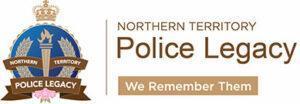Overview
It’s important for police families to stay engaged and seek support via peer to peer groups or through services and resources. Partners of police can often find friendship and understanding from each other especially in difficult times or when partners are away or working extended hours. Children of police will also benefit from social activities with other police families where they can enjoy friendships and activities.
Your local area command may have information about family days and events or groups operating in your local area. There are also a number of links via this site to guide you to groups or resources.
If there are no relevant services in your area perhaps think about starting a police family social group where you can catch up with partners or with the extended family. Closed Facebook groups or pages are easy to administer and can be a great way to find police families in your area. Locating at least two to three interested parties to assist with administration is often a great way to develop a Facebook page or group which facilitates a conversation, provides helpful links and suggestions as well as advertise social events.
For former officers joining your local retired and former police association will open up social engagement for both the former officer and their partner as most associations hold regular monthly meetings, social outings, welfare services and fund raisers.

Step-By-Step
Grief and Loss
What is grief?
Grief is a profound and complex series of mixed emotions that follow the loss of a loved one in your life. It can be someone you loved very deeply, your absolute everything, or someone you knew in your community. It can be expected or unexpected. Either way, it can affect you and your family members, friends, colleagues and the extended community in a range of ways.
Domestic and Family Violence
Women and men frequently conceal the consequences of physical violence by hiding injuries or making excuses for bruises – or worse. It’s a strange kind of loyalty that stops people from telling parents, siblings or anyone about what’s happening "behind closed doors".
Carers Support and Wellbeing, Quest for Life resources
Are you an exhausted career?
KEEP HEALTHY AND ACTIVE
Exercise regularly – 20 minutes daily will help you sustain the physical demands of caring and provide a break from your daily activities
Eat regular, healthy meals to fuel the strength and stamina you need for caring
Get enough sleep – tiredness and exhaustion increase the stress of caring
Look after your back – if you need to lift the person you’re caring for, get professional advice on the safest way to do so. Is there equipment that can help?
Talk to your GP about your caring role and the demands it makes on you.
Helpful Links
Content for family support
 17 Nov 2021
17 Nov 2021
Man Therapy
Resources including videos on topics that effect men or those with a man in their life they are concerned about. Topics include, addictions, anxiety, depression, divorce, relationship and sex, teenage children’s issues, sleep, trauma, grief and anger. First responders are included in videos and resources.
 17 Nov 2021
17 Nov 2021
Mensline Australia
Mensline Australia offers 24/7 counselling support via telephone and online to men across Australia. Resources and information is also available to enhance relationships, help with addictions, understanding anxiety, separation and divorce and dealing with general stress.
 15 Nov 2022
15 Nov 2022
Mental health and wellbeing strategy for first responders
This strategy sets out the commitment of NSW first responder agencies to promote and protect the mental health and wellbeing of their staff and members. It represents a consensus among the agencies about what is required to meet this obligation.
 27 Sep 2023
27 Sep 2023
Mentality Plus
Mentality plus is run by Craig Semple who is a former police officer with lived experience of PTSD and associated mental health conditions. He is fully accredited and culturally sensitive to police and provides mental health first aid training and programs to create mentally healthy and resilient workplaces, mental health motivational presentations, workplace health and wellbeing programs and mental health and resilience for students.
 17 Nov 2021
17 Nov 2021
Mind Health Connect
Mind Health Service Connect Line provides free telephone counselling and resources for people residing in the Hunter New England and Central Coast areas specifically covering mental and physical health as well as social support services.
 30 Mar 2022
30 Mar 2022
My Aged Care
My Aged Care, established by the Australian Government, can help you find and access the right government-funded aged care services.
 12 Apr 2023
12 Apr 2023
My Pulse
MyPulse is a collection of free and confidential health and wellbeing resources and services offered exclusively to AT and DPFEM employees and volunteers.
 17 Nov 2021
17 Nov 2021
National Centre for Childhood Grief
The National Centre for Childhood Grief provides unlimited free counselling for children aged 3 to 18 years and pay for service counselling for adults living with grief and bereavement. Services are available at ‘A Friends Place’, located in Denistone East, Sydney NSW.
 29 Jul 2022
29 Jul 2022
National Police Memorial
Established in 2001 the Memorial pays tribute to Australian Police Officers who have been killed on duty or have died as a result of their duties
 14 Nov 2022
14 Nov 2022
National State Police Insurance and Workers Compensation Providers
Serving police in each state pay into individual state insurance, workers compensation, superannuation and income protection schemes. Assistance during times of injury, Illness, death, or career transition are available by contacting your appropriate state provider.
 14 Nov 2022
14 Nov 2022
National State Police Legacy
Police Legacy provide professional and compassionate support to families who have suffered a loss through the provision of benefits and services. Children who have lost a parent may benefit from camps, scholarships, trust funds and regular social engagement which is also extended to partners and parents. Each jurisdiction has independent services which may differ from state to state.
 14 Nov 2022
14 Nov 2022
National State Police Retired Associations and Support Networks
Staying connected to the police family by joining your local retired and former police association may be helpful in maintaining social connection and positive mental health outcomes. Each state jurisdiction has a retired and former police association where regular monthly meetings and social events assist with staying in touch with former colleagues.
 03 Apr 2022
03 Apr 2022
New South Wales Police Force
Each individual state police jurisdictions will have mental health services for serving police which should include an Employee Assistance Program (EAP) along with other specific services. This may include EAP for transitioning police, former police up to 12 months and services for families. Career Transition services may also be included in some jurisdictions as moving into a new career after serving in the police force impacts mental health outcomes.
 03 Apr 2022
03 Apr 2022
Northern Territory Police Force
Each individual state police jurisdictions will have mental health services for serving police which should include an Employee Assistance Program (EAP) along with other specific services. This may include EAP for transitioning police, former police up to 12 months and services for families. Career Transition services may also be included in some jurisdictions as moving into a new career after serving in the police force impacts mental health outcomes.
 03 Apr 2022
03 Apr 2022
Northern Territory Police Legacy
Police Legacy provide professional and compassionate support to families who have suffered a loss through the provision of benefits and services. Children who have lost a parent may benefit from camps, scholarships, trust funds and regular social engagement which is also extended to partners and parents. Each jurisdiction has independent services which may differ from state to state.
 03 Apr 2022
03 Apr 2022
NSW Government Medicare mental health treatment plans
The first step to take when feeling overwhelmed or experiencing those niggling feelings of something isn’t quite right is to visit your GP. A general chat about your overall physical and mental health may indicate further investigation is warranted. This may include a series of tests to rule out physical issues and/or completing a mental health assessment. If your GP feels it would be helpful, you will be given a mental health plan and a referral to see a psychologist or psychiatrist.

 Exit
Exit




